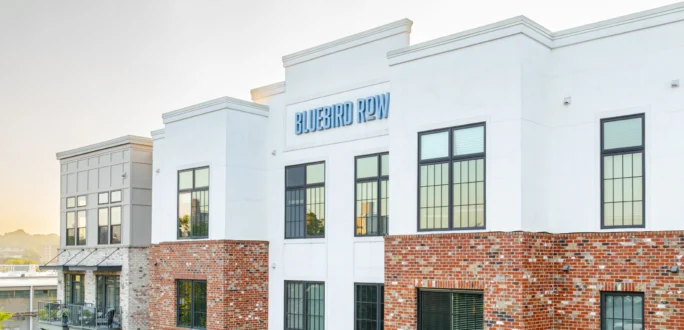
Selling Your Investment Property? Concerned About Taxes? Four Reasons to Consider a 1031 Exchange.

However, managing investment properties can also be a significant source of stress. Owners often find themselves burdened with tasks such as handling building repairs and addressing late-night calls from renters.
Real estate investors contemplating the sale of their properties should be aware that opting for a 1031 exchange with an established and national real estate sponsor can offer an array of unique benefits while also mitigating some of the pain points commonly associated with the hands-on management of assets.
The Basics of a 1031 Exchange
To begin, a 1031 exchange, also known as a like-kind exchange, is a tax-deferral strategy used by real estate investors to defer capital gains taxes when selling investment properties. In essence, Internal Revenue Code Section 1031 allows investors to sell one property and reinvest the proceeds into another similar property without triggering immediate tax liabilities.
To qualify for a 1031 exchange, both the property being sold (the relinquished property) and the property being acquired (the replacement property) must be held for investment or business purposes. Personal-use properties, such as primary residences, do not qualify for 1031 exchanges.
Timing is crucial in a 1031 exchange. Once the relinquished property is sold, the investor has 45 days to identify potential replacement properties and 180 days to complete the acquisition of the chosen replacement property. These deadlines are strict and must be adhered to in order to qualify for tax deferral.
Four Reasons to Perform a 1031 Exchange
Conducting a 1031 exchange through an investment firm like Hamilton Zanze can be an effective way to preserve your capital and build a legacy. Below are four compelling reasons to go through the process with us.
1) Tax benefits. A 1031 exchange defers capital gains taxes and allows you to reinvest the net sale proceeds, including unrecognized capital gains, in another income-producing property. This in turn lowers your tax burden for the year of the sale and provides more buying power for your replacement properties.
The tax benefits don’t end with the exchange. While you’re invested with a trusted and reliable sponsor like Hamilton Zanze, you’ll be able to receive tax-efficient distributions and benefit from taking depreciation deductions.
2) Portfolio diversification. By investing with Hamilton Zanze through a 1031 exchange, you can diversify your real estate holdings in markets across the country with favorable business and regulatory environments.
National sponsors like Hamilton Zanze offer both geographic and asset-type diversification, as well as expertise and experience in dozens of states and metropolitan statistical areas (MSAs). Instead of being tied to the fate of a single asset, our investors often diversify across our expansive portfolio of over 125 institutional-quality assets in 27 growth markets across the U.S., potentially reducing risk and enhancing the long-term stability of their real estate portfolios.
Individual investors may have access to these growth markets, but the cost and effort to purchase a multifamily asset in them could be prohibitive or render a low probability of a successful acquisition. Costs, in this instance, can include non-financial costs, such as acquiring knowledge of the market and gaining meaningful access to offerings, as brokers and sellers may not prioritize or award deals to non-local buyers with whom they don’t have a pre-existing relationship.
Moreover, remotely owning a property in one of these markets could prove to be a significant undertaking for an individual investor. Even if the asset is being managed professionally, the prudent investor would likely need to periodically travel to the asset and frequently monitor its performance. Additionally, finding a competent management company could prove expensive due to high management fees.
Hamilton Zanze’s expertise in MSAs around the U.S., long-standing industry relationships, and our property management affiliate, Mission Rock Residential, enable us to identify, acquire, and effectively operate those apartment communities to increase net operating income (NOI) and deliver strong returns to our investors. We are experts in acquisitions and dispositions, property management, local regulatory issues, accounting, and taxes. We bring scale and efficiencies through our diligent underwriting, property management, and capital expenditures to improve the long-term appreciation of the institutional-quality apartment communities we own. These are capabilities that individual investors just can’t match.
3) Wealth preservation and growth. By deferring taxes and reinvesting sales proceeds into Hamilton Zanze’s higher-performing properties, investors can preserve and grow their wealth more effectively over time. In addition, while you have an ownership stake in our professionally managed properties, the assets can grow your net worth through tax-efficient distributions and long-term capital appreciation.
Consider the cases of Avery and Leslie illustrated below.

Each initially invests $1 million in private real estate and earns a 4% annual distribution. After five years, Avery and Leslie sell their respective investment for the same gain.
On Avery’s behalf, Hamilton Zanze uses a 1031 exchange to defer capital gains and invest his sale proceeds in a second real estate investment. Meanwhile, Leslie pays capital gains taxes on gross proceeds and invests the remaining funds in her second property. Avery and Leslie eventually repeat this same process two more times and by their fourth investment, Avery has deferred approximately $1.29M in capital gains taxes, earned $304,483 more in distributions than Leslie, and received $2.38M more in total returns.
Deferring taxes and reinvesting in Hamilton Zanze-sponsored properties allows investors, like Avery, to maximize their wealth growth potential. Furthermore, Hamilton Zanze’s forthcoming HZ Evergreen Fund will simplify estate planning and the divisibility of your real estate portfolio (if exchanged into the fund), by enabling your heirs to inherit your shares—which can be easily divided among your family members.
4) Transition to passive income. Performing a 1031 exchange with Hamilton Zanze allows investors to move from the time-consuming and sometimes stressful hands-on management of investment properties to receiving true passive income. No longer do you have to worry about being awakened at 2 a.m. on Thanksgiving because a pipe in your rental property has burst. Additionally, you can be assured that you won’t burden your heirs with the strains and responsibilities of actively managing an investment property if they’re not inclined to do so.
Working closely with Mission Rock Residential, our affiliated property management company, we actively protect and optimize the performance of our properties for your financial benefit. We reduce controllable expenses and execute capital improvements that strive to increase resident retention, maximize net operating income, and boost property values.
If you’re interested in undertaking a 1031 exchange with us and experiencing all the benefits our investments have to offer, we’re here to walk you through every step of the process. Contact us at 415.539.0084, or via our online form.
To learn more about 1031 exchanges, including an introductory video, visit here.




